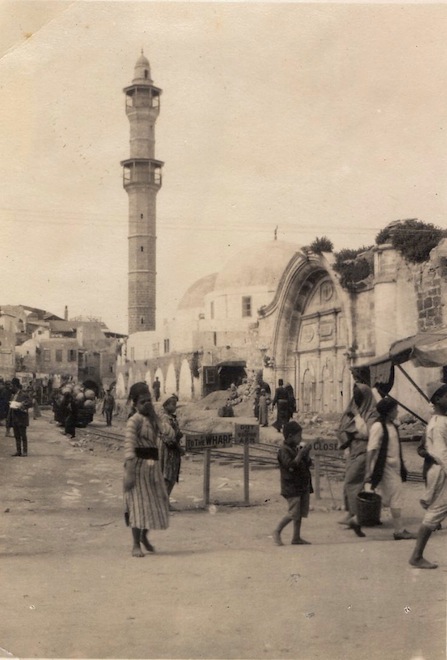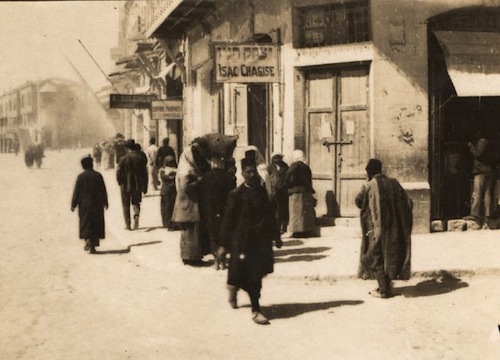S.Y. Agnon is apparently a key figure in Israeli literature, and Only Yesterday is very much a novel about Israel. But it is my book from Ukraine for the Read The World challenge.
My reasons for assigning the book to Ukraine were basically pragmatic — there wasn’t an alternative from Ukraine which sprang out at me, and I felt like reading something more contemporary for Israel — but it’s quite fitting anyway. It’s a novel about the early waves of modern Jewish settlers to Palestine at the start of the twentieth century, and although nearly all the action takes place in the Middle East, in many ways it’s a story of eastern and central Europe. The various characters are still as much identified with their homelands — Russia, Hungary, and so on — as they are with any nascent Israeli identity. In fact the book’s central character, Isaac, moves in an almost completely European world; the Arab population of Palestine is occasionally mentioned, but I can’t remember a single named Arab character. The few non-Jewish characters seem to be European Christians.

Neither Ukraine nor Israel existed as independent nations when this novel is set; Isaac is a Jew from Galicia, in the Austro-Hungarian empire, who immigrates to what is then the British Mandate in 1908. It is obviously not a coincidence that S.Y. Agnon was also a Galician Jew who made the same move at the same date. The novel is clearly only autobiographical in a limited way, though, since Isaac is an unsophisticated working man rather than a bookish one.
This is the book I have been whinging about (1, 2) because of its sheer physical weight. And it may have been a self-fulfilling prophecy, but I do think I would have finished it quicker and perhaps enjoyed it more if it hadn’t been so unnecessarily bulky. But I still enjoyed it; it’s humane and even quite funny, as literary novels go.
The human story of Isaac held my attention; I did sometimes start to lose focus with some of the more detailed stuff about Zionism and so on. There are so many people and organisations who get mentioned: writers, politicians, theologians, Zionist charities, settler organisations, religious groups. There wasn’t too much of the book taken up by characters sitting around in cafés and having conversations about Zionism, but there was a bit, and I just got the feeling that generally in the novel there was a whole level of commentary and satire that I was missing because I didn’t have enough context. Which is unfortunate.

But even if I didn’t get all the nuances, I still thought that the ideological aspect was important to the novel. One of the striking things about it is the portrayal of people trying to create a new place from scratch. It’s not a utopian project precisely, but all these settlers have made the difficult and expensive journey from Europe to Israel because of some idea or idealism, whether political or religious, and that idea may or may not survive contact with the reality . At the very least, the reality is unlikely to be exactly what they expected.
One of my reasons for reading it was that I was interested in a book set during that early history of modern Israel. But it’s not a history book, and like all(?) good novels what makes it work is an interest in people, not in ideas. And it is a very good novel, and generally a readable and engaging one.
» The first photo is of a street scene in Jaffa in 1917. The second is Jerusalem in 1918. Both from the British Museum.
One reply on “Only Yesterday by S.Y. Agnon”
Great review! I`m reading this for sure!